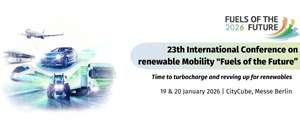B10 fuelling Kuala Lumpur's city fleet
Kuala Lumpur City Hall (DBKL) is aiming to use B10 biofuel for all of its diesel-powered vehicles by the end of the year, according to a press release from the Malaysian Palm Oil Board.
DBKL’s Mechanical and Electrical Engineering Department engineer Muhammad Alif Muhammad Noor said that this goal was part of the DBKL’s initiative to make Kuala Lumpur a ‘green city’.
“We have 2,040 vehicles. Half of them currently use diesel. We plan to migrate all of them by year end with the support of the Malaysian Palm Oil Board (MPOB),” he told the press during field testing of DBKL vehicles using B10 biodiesel.
Since 2014, all diesel sold in Malaysia has 7% palm oil content, meaning it is referred to as B7. The government plan is to increase this blend to 10% (hence, B10) by the end of the year.
According to the MPOB press release, the vehicles involved in the field test showed significant reduction in carbon emissions. The tests were carried out by Malaysia’s Department of the Environment.
“Our Nissan UD LKA produces only 2.8% emissions while our pick-up truck, Navara, 2.7%. This is excellent, as the DoE cut line is 50%. This is far better than the normal diesel,” said Alif.
DBKL and MPOB have been collaborating on B10 vehicle testing since 2014. “Since the project started, there has been no problem with those vehicles using the B10 biodiesel.”
MPOB’s principal research officer, Wan Hasamuddin Wan Hassan, said the current B7 pumps at fuel stations would still be supplied for after the B10 rollout.
“Euro 5 B7 pumps will still be there. Now consumers have a choice to pump either B7 or B10, subject to their engine capacities of course,” he said.










